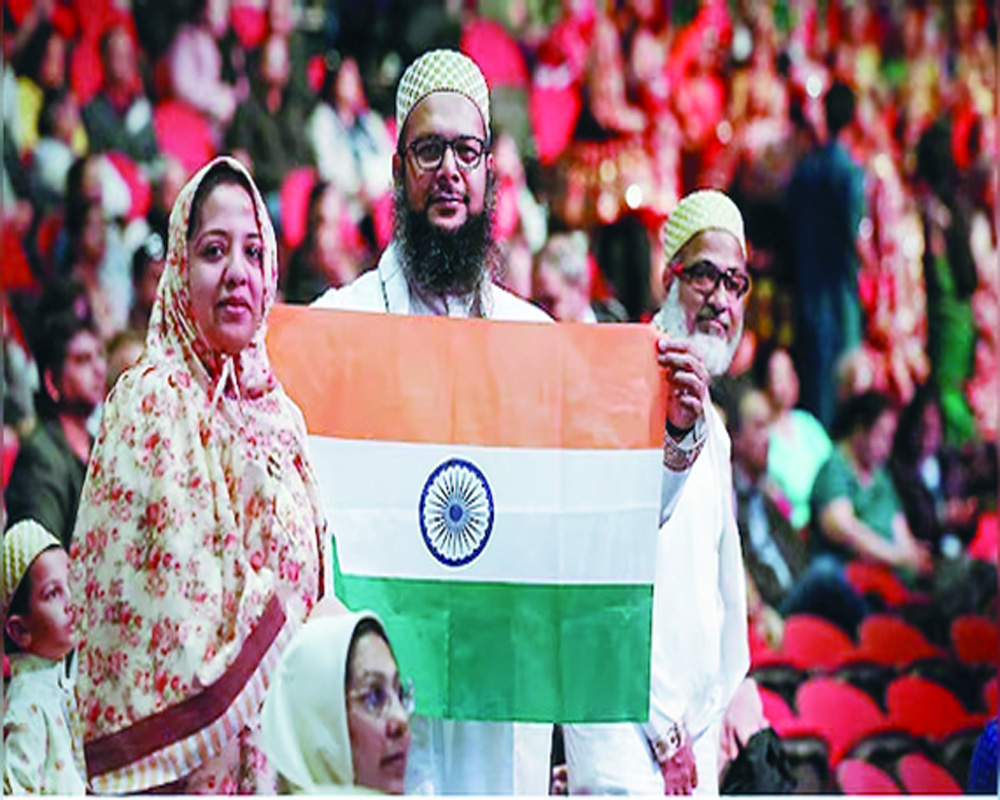Indian Muslims must embrace internal reforms that align with a modern, secular framework, helping to bridge societal divisions
The rise of right-wing politics in India seems to have solidified its presence, and the deepening of Hindu-Muslim fault lines is likely to persist. While liberal and secular parties may win several State elections, an increase in their numbers in Parliament or State legislatures is unlikely to mend the fragile communal ties. The division between communities has now reached a deeper societal level, presenting a grave challenge for Indian Muslims. To minimise this damage and repair the social fabric, it is essential to promote a counter-narrative grounded in secularism. Indian Muslims
must focus on internal reforms that promote secularisation within their own societal framework. While some right-wing claims about Muslim life may be exaggerated or entirely untrue, certain aspects warrant closer introspection by the community itself. Although the issues have intensified since 2014, their roots can be traced back to much earlier times.
As Muslims, it is critical to rework the internal narrative and processes within the community to align with secular values. The painful legacy of India's partition, drawn along communal lines, has left a heavy burden on the Muslim community. In response, Indian Muslims need to go above and beyond to heal the sentiments and emotions of the majority community. Despite constitutional protections and safeguards, the community needs to focus on changing perceptions at both societal and communal levels.
One step toward this change is to reform Muslim personal laws and harmonize them with a modern, progressive social order. Instead of framing personal law reforms as a Hindu-Muslim conflict, Muslims should see these reforms as standalone processes that benefit the community. A close examination of some outdated practices will reveal that reforms have already taken place in many Muslim-majority countries.
The All India Muslim Personal Law Board missed a crucial opportunity to declare triple talaq un-Islamic before the government passed legislation against it. Similarly, the Shah Bano case harmed the Muslim community's interests and fueled the resurgence of right-wing mobilisation. The Muslim Personal Law Board has exacerbated the community’s challenges by opposing every proposed reform instead of acting as a forward-thinking, responsible institution.
Another significant issue facing Indian Muslims is the lack of leadership from within the intelligentsia. With few exceptions, Muslim leadership has been monopolised by the clergy, leaving the community without enlightened, visionary, and progressive guidance. The void left by Maulana Abul Kalam Azad has remained largely unfilled. Even leaders like Asaduddin Owaisi, despite their education and goodwill, have failed to adopt a liberal and secular approach in addressing legitimate community concerns. An aggrieved community must communicate in a conciliatory manner, rather than adopting a confrontational stance.
The Muslim leadership's approach to the Hijab controversy clearly illustrates this failure. While Muslim women are entitled to wear the Hijab as a matter of choice and religious freedom, elevating the issue to the extent of students quitting their studies was unwise. It is essential for religion to be separated from public life and confined to the private domain. Although this holds true for all communities, Indian Muslims must make this move more emphatically due to historical reasons. The community needs to create a secular platform to address its concerns. The severe political and socio-economic challenges facing Muslims today cannot be ignored. One positive step in this direction has been the recent initiative by a group of retired civil servants from Delhi who attempted to engage with leaders from the Rashtriya Swayamsevak Sangh (RSS). However, the initiative failed to gain traction as it was undertaken individually without an organizational framework. To be successful, such efforts must be scaled up to a national-level dialogue with a clear agenda involving eminent citizens from various levels, including state and central governments. It is imperative to address the widespread perception that the Muslim community is resistant to reform, reconciliation, and compromise.
Before the Hindu-Muslim fault lines in India reach a dangerous level, the country urgently needs a period of cooling off. Many right-wing grievances against Muslims lack substance and truth. In a society governed by constitutional principles and the rule of law, a community cannot be punished for the historical wrongs committed by its ancestors.
To address the right-wing narrative effectively, the Muslim community must launch a secular, modern, and progressive narrative based on evidence, rather than countering with equally polarizing rhetoric. it is the only viable option.
(The writer has been associated with the Centre for Policy Research, IIM Lucknow, University of Delhi, and Jamia Millia Islamia, New Delhi; Views are personal)
























